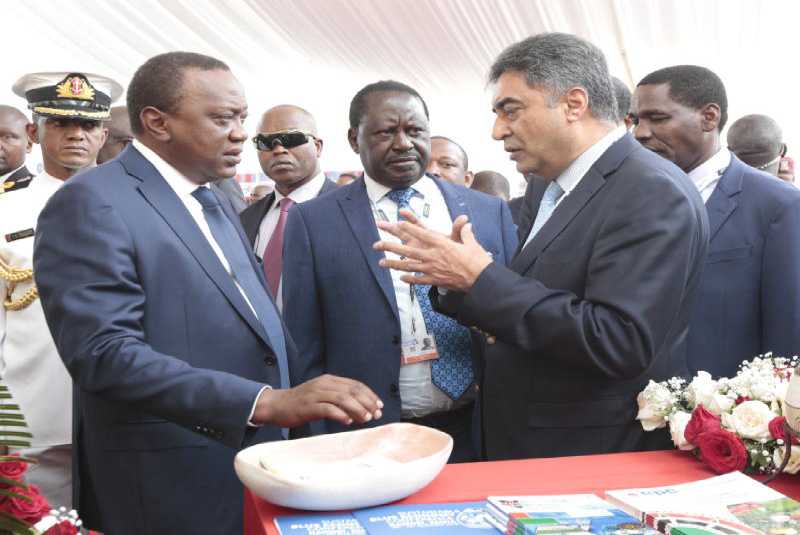×
The Standard e-Paper
Stay Informed, Even Offline

President Uhuru Kenyatta (left) and former Prime minister Raila Odinga(centre) and Chairman of Inspiring global trade(epc)Chairman Jaswinder Bedi during a sustainable Blue conference at KICC on 27/11/18-[Photo: Beverlyne Musili,Standard]
Kenya has stepped up measures to increase production of tuna fish along its Indian Ocean coast.